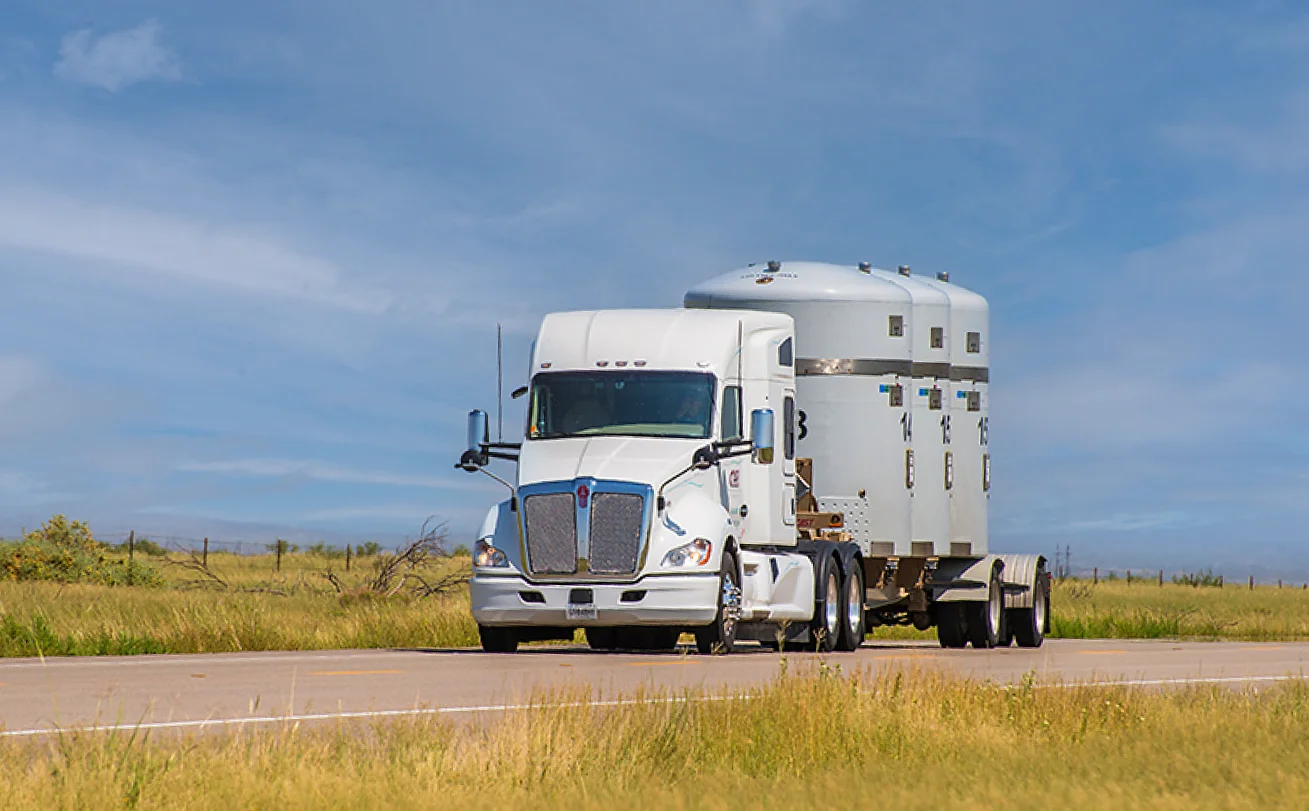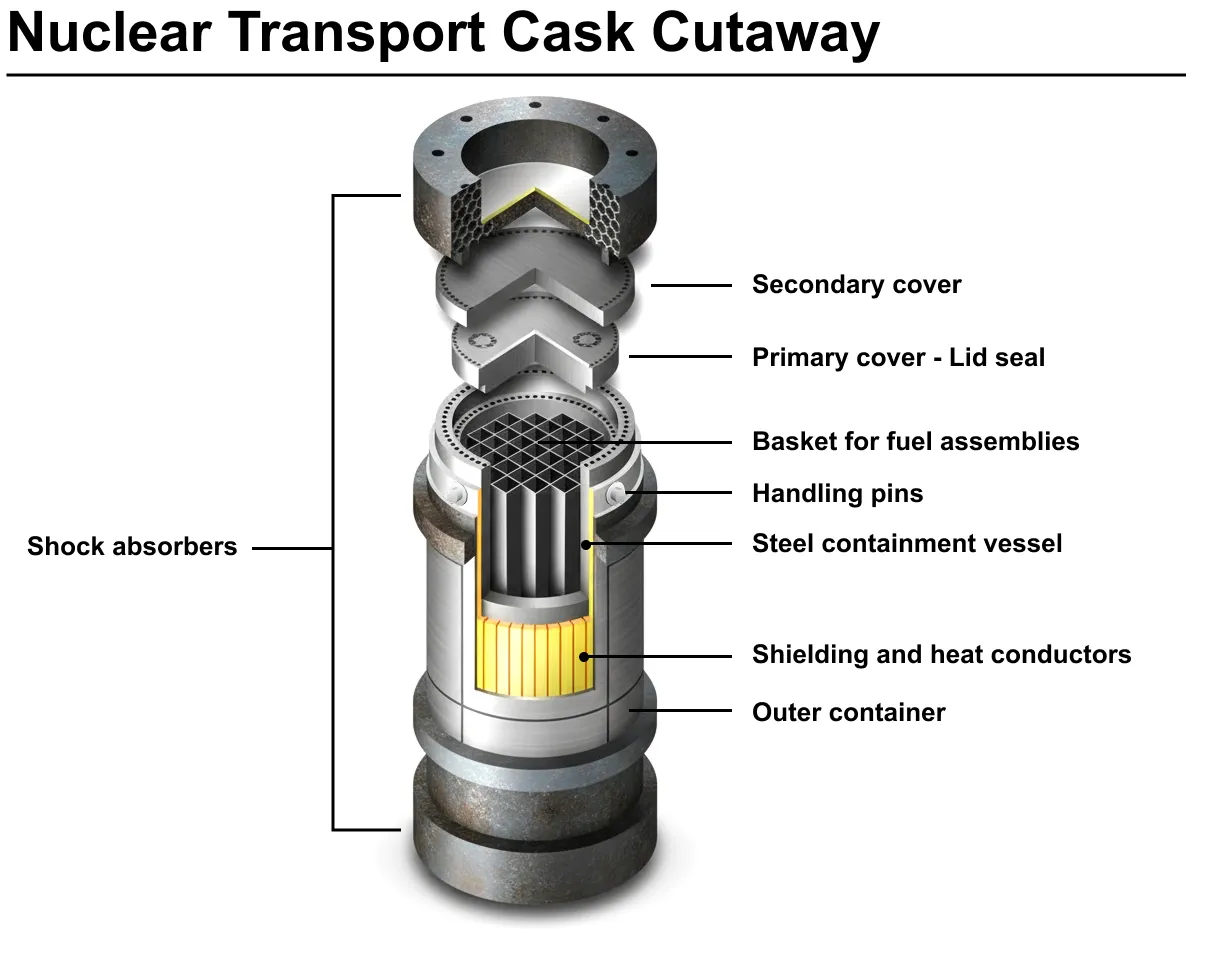Transportation Cask (or Flask)
A transportation cask—sometimes called a flask, especially in Europe – is a specially engineered container designed for the safe truck or railcar transport movement of radioactive materials, such as spent nuclear fuel or radioactive waste, between facilities. Casks are a cornerstone of nuclear industry safety, protecting workers, the public, and the environment during every stage of nuclear material transport.
Made with thick layers of steel and additional shielding materials, these containers are designed to withstand severe conditions, including large impacts, high temperatures, and water immersion. Key features include heavy walls, robust lids with secure seals, internal baskets to hold fuel assemblies, shock absorbers, and heat conductors. Casks are rigorously tested to comply with international and national safety regulations before being approved for use.
The term “cask” is most commonly used in the United States, while “flask” is more often used in the United Kingdom. Despite the difference in terminology, both refer to the same type of high-integrity packaging used for nuclear transport.
Transportation casks not only contain the radioactive materials themselves, but also shield against harmful radiation, prevent leaks, and help control temperatures during transit. Their design and testing ensure public confidence in the safe, secure movement of nuclear materials over road, rail, or sea.


Nuclear Transportation Casks (or Flasks)
Spent nuclear fuel must be moved from power plants to interim storage, then to reprocessing facilities, and eventually to a final repository. The robust containers used for this purpose are called casks (also referred to as flasks).
Casks are engineered to contain highly radioactive materials with multiple layers of thick steel, special shielding, and shock absorbers. They undergo rigorous tests simulating severe impacts, fires, and water immersion to ensure public and environmental safety under both normal and accident conditions.
It’s not only spent fuel that requires careful transport. Fresh nuclear fuel, which has very little radioactivity, can be shipped more simply, while materials like yellowcake travel in standard barrels. However, uranium hexafluoride, though only mildly radioactive, is toxic and must be transported in specialized flasks.
These containers—casks or flasks—are at the heart of safe nuclear material transport, providing physical containment and shielding while meeting strict international regulations.



